Everybody wants to write a cookbook. A veterinarian once told me this as she probed and prodded my poodle. The UPS man said so as he delivered a cookbook manuscript to my door.
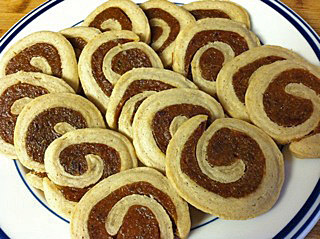 It’s fine to aspire. But coming up with all those pesky recipes may be a challenge. In case you didn’t know, famous folks often just hire a recipe developer. Some peeps solve the problem by cleverly adapting other authors’ recipes, which (unfortunately) in some cases is legal but does require reworking them in a particular way.
It’s fine to aspire. But coming up with all those pesky recipes may be a challenge. In case you didn’t know, famous folks often just hire a recipe developer. Some peeps solve the problem by cleverly adapting other authors’ recipes, which (unfortunately) in some cases is legal but does require reworking them in a particular way.
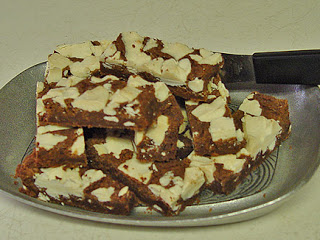 Extra testing in your own kitchen is a good way to find errors like dropped ingredients and incorrect yields, but getting third parties to make and rate your recipes is a much more valid measure of their worth. It helps verify that the instructions are clear and doable by somebody other than you! And it helps gauge whether the eventual user is likely to be happy with the final dish.
Extra testing in your own kitchen is a good way to find errors like dropped ingredients and incorrect yields, but getting third parties to make and rate your recipes is a much more valid measure of their worth. It helps verify that the instructions are clear and doable by somebody other than you! And it helps gauge whether the eventual user is likely to be happy with the final dish.
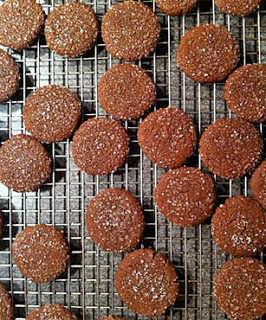
I wish I could brag that everything tested was good enough to go in a cookbook, but I knew from past experience that this wouldn’t be the case. (An earlier post on accepting testers’ criticism gracefully is here.) Of the approximately 20 recipes tested only 7 received perfect or near perfect ratings of 9 or 10 in all four categories.
The testers’ remarks about the winners were the kind every cookbook author hopes to hear. Commented Steven, “It’s fairly unusual and exotic … I loved this cookie!” Cindy was also thrilled with her results: “This is an absolutely delicious biscotti recipe. I especially like the texture—although it is crunchy, it’s not a tasteless crunch nor a hurt-my-mouth crunch….” And Susan simply said of the Vanilla-Cream Sandwich Cookies, “… they are SO delicious.”
In the dud group, six recipes received a disappointing 7 points or less in at least one category, and two received an utterly abysmal 3 and 4. I consider even a 7 a failing grade because when folks are paying for recipes they expect and deserve something better than “It’s okay.” I’ve since spent 3 weeks upgrading a sugar cookie recipe that received a single 7 (the other scores were 8s) because the tester’s reaction was so clearly ho-hum. Said Margo, “A basic, sturdy, serviceable, easy to make sugar cookie, but it didn’t knock my socks off.” If I don’t routinely knock people’s socks off, especially with traditional favorites like sugar cookies, I’m not going to maintain a loyal following or generate the broad enthusiasm and word of mouth needed to sell books.
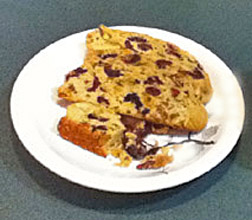
You might assume that the complete “duds” automatically get dumped, but it’s not that simple. I did immediately cut a recipe for animal crackers that the tester, Deb, gave mostly 6 ratings because of her following comments: “Lacking in flavor. Just not appealing.” And the real killer, “Not worth the trouble. Just didn’t compare to animal crackers.” Calling a recipe a waste of time and less appealing than store-bought is a kiss of death!
My Sweet & Crunchy Peanut Crisps recipe actually received the single worst score—a 3 for taste from a tester named Sallie. But Sallie’s ratings of 7 for texture and 8 for appearance, along with her several favorable comments made me think the recipe might be worth saving. I’ve since completely reworked it to jazz up the taste and am fairly certain it’s now cookbook worthy. In case you’d like to try the “new and improved” version, it’s posted here.
The most troubling negative response was to my Chocolate-Cardamom Crunch Cookies, which I absolutely adore, but which the tester, Elaine, and her battery of samplers “did not care for at all.” They found the bits of crushed cardamom seeds distracting and “chalky” and the overall appearance drab. Some raters even found the taste of the spice strange. I, in contrast, specifically called for crushed, not ground, seeds because I loved the crunch, and I happen to think that cardamom is the world’s most alluring spice, especially when combined with chocolate.
So, I plan to make these again and present them to a large tasting/rating panel before deciding their fate. If I do put them in the book, I’ll emphasize in the headnote that though most cardamom fans will really enjoy them, they will not have broad appeal and they look rather plain.
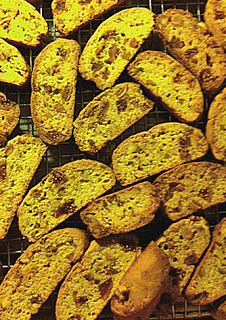
I’m enormously grateful that my volunteers were so thorough and thoughtful. They offered a wealth of other invaluable insights into what the “end user” probably wants and needs. I’m going to thank each one of them for their important contribution on the book’s acknowledgements page.
Here are just a few of their many comments that have enabled me to improve specific recipes and my book in general. And there will be more helpful feedback coming, because I’m sending out additional recipes to testers soon.
“When a recipe calls for posh chocolate, I expect the results to be orgasmic.”
“Found a serrated knife caused tendency toward slices breaking more than a regular knife.”
“The mixing and shaping are easy, but give a heads-up that the prep is substantial.”
“I think a novice baker would find rolling the dough into a square a bit challenging.”
“Had to drive 20 miles to get the cardamom seeds for this cookie.”
“I would add more detailed instructions on dough shaping. Not everybody is experienced.”
“The reader would appreciate a heads-up on how long this will take from start to finish.”
“The biscotti loaves cracked on top during first baking. You should tell readers if this is normal.”
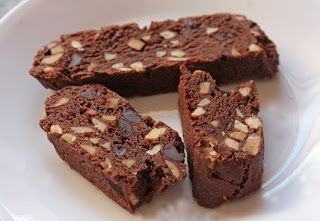
As you might guess, hearing truly candid feedback isn’t necessarily fun, but it’s incredibly worthwhile. I put it in the same category as getting a shot—it hurts but it makes me better.

i just signed up for your newsletter, and can't wait for your new book. Thanks for sharing your ideas and recipes so generously.
As for how I find my testers–as needed, I put a notice in my newsletters asking for volunteers. If you're interested sign up for my free newsletter here. (I never give out or sell my mailing list.)
https://app.e2ma.net/app/view:Join/signupId:49815
Thanks, Irvin! I don't know that everybody uses home testers, but I know that most magazine test kitchens have tasting/rating panels, and some do send out recipes for additional home testing. It's really THE best way to be certain home cooks will be happy with them.
I LOVE this post. It's always fascinating to see the "behind the scenes" of a professional recipe developer/cookbook writer. People don't realize the amount of work that can go into developing a recipe and testing it until it really sparkles and shines.
How do you find your testers?
Yes, it is wonderful to self-publish a cookbook for family & friends. I also think the community fund-raiser cookbooks are fun–they are a good indicator of what average folks are cooking and eating at various points in history, though not necessarily a trustworthy guide to how to bake the dishes! Plus, they certainly can raise money for good causes.
But you are right–"real" cookbooks need to have recipes that actually work. Nowadays, if they don't, the author is going to hear about it in on-line reviews and sales are going to be negatively affected.
Dreams of grandeur with the cookbooks, just like some beginning in music or those aspiring to be the next Ansel Adams in the photo world.
It's one thing to self publish a book for family and friends, and quite another to do one where people have to fork over money for the book. Stuff better work, and you shouldn't have to drive 20 miles for ingredients 😉 Excellent post and nice site.
As I said, I really had no clue that my volunteer testers would be changed by their experience, so Steven, thank you for sharing your thoughts. Some years back I did arrange for weekly recipe tasting-rating sessions using the folks at my son's company as the guinea pigs (so to speak!). I realized as the weeks went on that their evaluations were becoming more precise and sophisticated–they were learning to taste in a more analytical and perceptive fashion. So I probably should not have been surprised.
Thanks for your comments on the cardamom cookies also. It's now clear to me that if I put it in the book I have to alert people that while it will make some very happy, it is definitely not for everybody!
I, too, was a tester, thoroughly enjoyed it, and like Cindy found the experience edifying, especially the rating aspect. Taste – as both a sensory perception and as a personal preference – is so deeply subjective that it is extremely difficult to not only put into words your reaction to a food item, but also to then put a number on your overall feeling about it.
Analyzing my reaction in order to rate each cookie reminded me of taking part in a wine tasting, where you try to identify the individual components and how they contribute to the whole.
Focusing your attention and discrimination in this way heightens your perceptions, I think, just like any activity that you practice and study. As Cindy said, this experience stays with you, if you continue to pay such attention.
I am also a big fan of cardamom, and would love to try the cookie you mentioned, but I have found that cardamom is one of those flavors, like cilantro, that people either love or hate. (I know this from friends' comments as well as my partner's aversion to it.) So I would imagine that if you're not a cardamom lover, having to eat a cookie in which the spice is not fully ground would probably only make matters worse.
Cindy, thanks for posting this–and thanks for testing. It didn't occur to me that this might be considered a learning experience for the tester. I'm glad to hear that you are less inclined to take shortcuts–I try to build in any that will work, and, usually, if one isn't suggested, it's because it doesn't produce good results.
I'm one of the people who were lucky enough to test a recipe. I think of myself as an experienced home baker, and this process really challenged me to slow down and think about everything I do and why. It challenged me to NOT take short cuts, to be thoughtful while baking (in order to report accurately and helpfully), and this has stayed with me! I think that I'm a more mindful baker now. Can't wait to see the cookbook and bake my way through it!